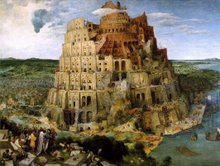
Following the train of thought from the last post, I'd like to expand on the discussion on Kitsch.
Here's an interesting little yes/no questionnaire I came across in Odd Nerdrum's book On Kitsch.
1. Do you prefer truth to talent and sensuality?
2. Is the ironic mask better than the serious, trusting face?
3. Do you have contempt for those who try to rob the old masters of their technique?
4. Are the great archetypes, such as; two lovers by the sea, mother and child etc. outdated cliches?
5. Do you long for a dialogue with the present rather than an eternal expression?
6. Are you more preoccupied with exposing man rather than giving him dignity?
7. Are you more attracted by living in an artistic process rather than creating a masterpiece?
8. Do you like the decorative expression above the sentimental expression?
9. Are progressive ideals more important than natural studies?
10. Do you want your work to be accessible to only a select elite and not for all?
11. Do you think that a classical-figurative painter has to live as an inferior <
12. Do you work towards the development of rules of originality and not for your own ego?
13. Is the term <
14. Do you despise those who seek their own desires even in a work which is not understandable?
15. Do you view the knowledge of craftsmanship as being a hindrance to free expression?
16. Is debate in the public world more important than the intimate sphere?
17. Are there motives you are afraid of portraying because you've seen them done so many times before?
18. Are you more interested in belonging to a group which is fashionable, rather than being in contact with an isolated individual with ability?
19. Do you maintain that humankind constantly improves itself and that their hearts are never the same?
20. Have technical aids, such as the photograph, greater magic than the work of the hand?
21. Do you think that the relationships between the hand and eye of a living person is a defunct expression, and that the future will only deal with visuality untouched by human hands?
22. Do you believe that your life and your work are two different things?
23. Is modernism [post-modernism] the final level in the development of our history?
24. Are you disgusted when you hear that modern artists hate talent?
Rate yourself:
If you answered "no" in response to all of the above, then you are - according to the following art critics: Broch, Calinescu, Greenberg, Kulka, Kundera and Ortega y Gasset - a real kitsch person.
If you answered "no" in response to question number 10, you are well on your way.
If you answer "no" in response to five questions, or fewer, you are still an artist.
Have you read the book? Nerdrum seems to address only Modernism - do you think he's specifically ignoring Post-Modernism, if so, why? Do you think it's just a [successful] publicity stunt, or do you think he brings up some good points? Is the redefinition of Kitsch important or relevant?




